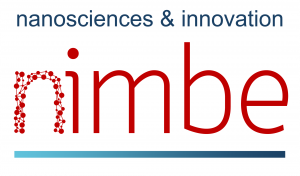PhD Topic : Vertically aligned carbon nananotubes on aluminum foils: one-step synthesis from bio-sourced precursors and electrochemical characterization
To enable the development of carbon-free energies, electricity storage is one of the biggest challenges to overcome. Among the many autonomous sources, supercapacitors,
based on rapid charge/discharge cycles of ions on carbon surfaces, are located between capacitors and batteries. Their high storage efficiency (>95%), security, reliability and lifespan make them good candidates to complement or replace existing solutions. The supercapacitor market is booming, but the performance of technologies based on carbon electrodes is plateauing. The development of a new material for carbon electrodes is the key to the emergence of higher energy supercapacitors.
In this context, the use of nanomaterials specifically organized at the nanoscale such as vertically aligned carbon nanotube (VACNT) mats is very promising. New pseudocapacitive electrode materials based on vertically aligned carbon nanotubes (VACNT) modified by electronically conductive polymers have demonstrated their interest in producing supercapacitors, thus validating the interest of such a configuration (alignment and regular spacing of the nanotubes in the material) in terms of energy gain and especially power of the
supercapacitor.
The topic of my Phd project is part of a partnership between the LEDNA of NIMBE (CEA-CNRS UMR3685), the LPPI of Cergy Paris Université and the company NawaTechnologies (today NAWAH). We will seek to develop the controlled growth of CNTs aligned on collectors in aluminum compatible with industrial use. Emphasis will be placed on the use of bio-sourced precursors and on the nature and composition of the reactive gas phase. Considering the application, we want to master the characteristics of the mats resulting from these new synthesis conditions, the latter having a crucial role on the capacitance of the electrodes, and therefore the energy density stored in supercapacitor devices.
My thesis defense is scheduled for September 23, 2024 at INSTN, CEA Saclay.





